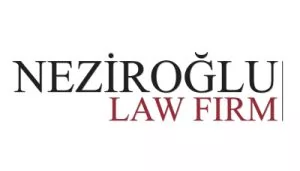Every jurisdiction in the US has a duty of care obligation for directors, which in very basic terms means that directors are expected to do their jobs with the necessary care and prudence required in a given company and sector. Fiduciary duty of a director in a company is a broad topic yet probably the most important question one should ask is how robust the rule is.
Directors are of course offered a certain level of protection by the business judgment rule, meaning that their decisions are protected by the fact that they possess a certain degree of know-how of the sector and make decisions accordingly, but the duty of care can be thought of as a prerequisite for business judgment protection for officers and directors. The extent of this however, is open to debate as well as how much can result to liability on part of the directors. In some, jurisdictions courts state that unless there is some sort of fraud or illegality they would rather not get involved – offering directors the business judgment protection. In the majority of US jurisdictions however, the courts are a little broader in how they define business judgment. The directors should adequately inform themselves and ask the right questions. Generally, mere negligence however, is not enough to give rise to liability. The director has to be grossly negligent (close to recklessness) in order to give rise to liability for him.
Usually underlying the duty of care scenario present is an underlying conflict of interest problem or when the directors have really been totally ignorant of a major aspect of a decision – suspiciously inattentive of a disaster.
Yet, keep in mind that even when a director does breach the duty of care or loyalty, they could potentially escape liability if you prove the transaction was entirely fair to the corporation or its shareholders.
Of course, the reason why are courts hesitant to actually impose liability for such a breach of duty is because no one in that case would want to be a director if they can be held liable for so many things easily, and furthermore, courts do not have the institutional competence to interfere in these areas. On the other hand, from the director's point of view, courts should be more hesitant to find liability because shareholders also do put a certain level of faith and trust into the board.
If somebody is to make the decision in a company, naturally one would like it to be the directors, all things considered, not the courts. Furthermore, we would like to have the directors be able to take certain risks. Shareholders do not always prefer directors to be worried about trying out new courses.
The Standard: DIRECTORS NEED TO BE REASONABLY INFORMED
As a general rule, the directors of a given company should acquire at least some rudimentary understanding of the business of the corporation. A director must become familiar with the fundamentals of the business in which the corporation is engaged in. Courts expect directors to exercise ordinary care; meaning that directors cannot defend themselves stating that there was a lack of knowledge needed to exercise the requisite degree of care. Directors are under continuing obligation to keep informed about the activities of the corporation and may not shut their eyes to corporate misconduct and then claim they did not see.
The In re CAREMARK case is an example of international derivative litigation and sheds light on the legal standard governing a board of directors' obligation to supervise or monitor corporate performance.1 The ruling in this case points out that directors need to have an adequate flow of information. They do have a duty to monitor and should have a system in place to make sure there is a reasonable flow of information. This aforementioned system to provide a reasonable flow of information should at least be a procedure that catches the major issues even if not each and every small detail that generates during the flow of business, as to catch every small detail can be unnecessarily costly.
In general, directors should not violate their duty to be active monitors of corporate performance and the duty to exercise appropriate attention can arise in two different ways.
- Such liability may flow from a board decision that results in a loss because that decision was ill advised or negligent
- Liability to the corporation for a loss may be said to arise from an unconsidered failure of the board to act in circumstances in which due attention would, arguably, have prevented the loss. In this scenario, the loss would not be due to a faulty decision but rather inaction. Liability would arise consequently arise for failure to monitor activity.2
In order to prove that the directors breached their of the duty of care by failing to control, one would need to show evidence of;
- That the directors knew, or
- Should have known that violations of law were occurring and
- That the directors took no steps in a good faith effort to prevent or remedy that situation
- Such failure resulted in the losses complained of.3
Of course it should always be kept in mind that a bad decision made by a director merely by itself is not enough to give rise to liability, as proof of more than a mistake of judgment would be necessary. A mere bad decision is not enough for a breach of the duty of care, there has to be illegality or bad faith or dishonest purpose. Courts are not to second guess bad business judgments but there is the presumption that in making a business decision, the directors of a corporation act on an informed basis, in good faith and in honest belief that the action taken was in the best interest of the company at the time.4
For example, if directors are to rely on reports as basis of a business decision, the reports should be prepared by a reliable source or expert and be detailed. Directors need to inform themselves of all information reasonably available to them and relevant to their decision. Liability can result of directors due to a lack of due care in the decision making process (Brehm v. Eisner).5 Courts state that the directors need to be "reasonably informed" in making business decisions, as in they must consider all material information reasonably available.
Rule 23.1 states that a "motion to dismiss in a due care case where an expert has advised the board 6in its decision making process, the complaint must allege particularized facts, that if proved would show that: (a) the directors did not in fact rely on the expert, (b) their reliance was not in good faith, (c) they did not reasonably believe that the experts advise was within the experts professional competence, (d) the expert was not selected with reasonable care by on or behalf of the corporation, and the faulty selection process was attributable to the directors (e) the subject matter that was material and reasonably available was so obvious that the board's failure to consider it was grossly negligent regardless of the experts' advice of (f) the decision of the board was so unconscionable as to constitute waste or fraud."7
Thus, mere disagreement with the board's judgment as to how a particular matter was handled cannot serve as grounds for imposing liability based on breach of fiduciary duty.
Of course, the nature and the extent of reasonable care depends upon the type of corporation, its size and financial resources.(Francis v. United Jersey Bank)8
Footnotes
1 In Re Caremark International Inc. Derivative Litigation (Del. Ch. 1996)
2 Business Associations: Agency, Partnerships, and Corporations, Klein, Ramseyer and Bainbridge (9th ed. 2015), pages: 299-322.
3 Business Associations: Agency, Partnerships, and Corporations, Klein, Ramseyer and Bainbridge (9th ed. 2015), pages: 203-42.
4 Business Associations: Agency, Partnerships, and Corporations, Klein, Ramseyer and Bainbridge (9th ed. 2015), pages: 203-42.
5 Brehm v. Eisner (Del. Sup. Ct. 2000) (en banc)
6 Business Associations: Agency, Partnerships, and Corporations, Klein, Ramseyer and Bainbridge (9th ed. 2015), pages: 322-51.
7 Stat.:Delaware General Corporation Law
8 Business Associations: Agency, Partnerships, and Corporations ,Klein, Ramseyer and Bainbridge (9th ed. 2015), pages: 395-97, 402-03, 409-11, 451-80
The content of this article is intended to provide a general guide to the subject matter. Specialist advice should be sought about your specific circumstances.



